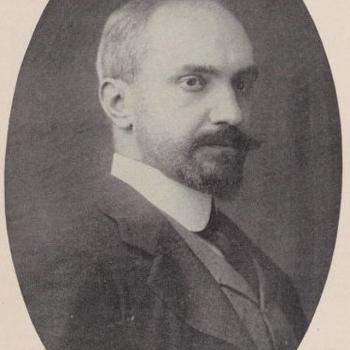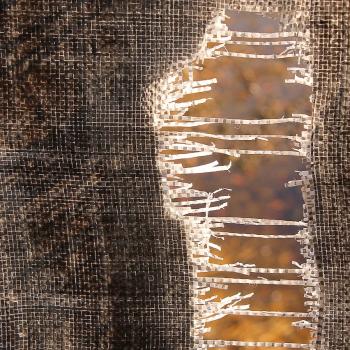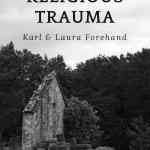Here is the beautiful truth—saints and sinners are the same from the start.
Hsu Yun, Chinese Chan Buddhist (freely adapted by me)
As a young writer, I read everything I could find on the subject of writing. One of the books that impressed me at the time was written by novelist John Gardner called Moral Fiction. If my memory serves me, it is in that book that Gardner argues that every writer has a wound which drives his or her writing. By “wound” Gardner meant a psychological trauma so devastating that the writer revisits and seeks to re-write this trauma constantly in her or his work. (This theory predates the concept of Post-Traumatic Stress Disorder, PTSD.)
It’s not surprising that Gardner should have developed such a theory, since he had suffered a severe trauma in his own life. John Gardner grew up on a farm and, as is often the case, he drove tractors when he was quite young. One day Gardner was driving a tractor with his brother riding on the back. His brother fell off and was killed by the implement the tractor was pulling.
For the rest of his life, Gardner replayed and replayed in his mind the image of his brother falling. He blamed himself for his brother’s death. He never stopped asking himself, “What could I have done?”
Gardner himself eventually died in a motorcycle accident.
As I made my own attempts at writing, I discovered that the old cliche “truth is stranger than fiction” is partially true because writers can’t help attempting to make sense of the random happenings of the world. The human mind can’t help trying. Creative writing is, if nothing else, an assertion of the self in the face of what often appears to be a completely random reality. It’s the human need to create meaning that makes fiction less strange than truth.
But it is not true that only writers have wounds. Sure, some people become writers because of the need to process trauma. But the fact is, as the Buddha observed long ago, life itself is loss. We suffer because nothing is permanent except change.
Think for a moment about something you are hanging onto. Something that you just can’t let go. Something that makes you cringe when you think of it. Something that you replay, like an old movie in your head.
Now. Allow me to ask a very simple question: what do you gain by hanging on to what you are hanging on to?
Pain makes us individualists. As Shakespeare put it,
I will be flesh and blood,
For there was never yet philosopher
That could endure the toothache patiently,
However they have writ the style of gods
And made a push at chance and sufferance.
I think that Shakespeare is driving at the insight psychologist Carl Jung had when he coined the phrase “wounded healer.” It isn’t that therapists or ministers or anybody else have the answers to life’s wounds. It is, rather, that dwelling on those wounds drives many of us to be therapists or ministers or philosophers.
And the insight we find, when and if we find it, is that pain makes us individualists, but the cure for pain is reaching out. However we write the style of our gods, we must accept our flesh and blood and dependency on others before healing begins. This is perhaps not an entirely reassuring insight. We would rather see our healers as experts. But that attitude, too, is a fall into individualism. The answer is in reaching out.
The Chinese Chan Buddhist Hsu Yun said it simply:
Here is the beautiful truth—
saints and sinners are the same
from the start.
















